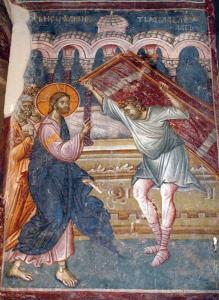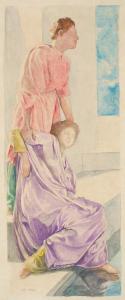
Labor Day pays tribute to American workers for their industry, accomplishments, and contributions to society. The holiday was signed into law in 1894. It was an attempt by the US President and Congress to repair relations with American workers following great upheaval, unrest, and a severe deterioration of trust (Refer here). How often do we take for granted the meaning of the holidays we celebrate and the history behind them, including Labor Day? Similarly, how often do we take for granted the abilities and opportunities we have to work, as well as to play?
I no longer take for granted my ability to walk, to move and exercise my limbs, to carry objects, to talk, to teach, to write, and to eat on my own so I can get back to work. As I visit my twenty-five-year-old son today, who resides in a rehabilitative care facility as a result of a traumatic brain injury suffered earlier this year, I will be thinking about what I would give for Christopher to be able to walk again, to move and exercise his limbs with dexterity and determination again, to talk, and to eat on his own again, so he can get back to work to care for his family.
I have never seen anyone work harder for those he loves. Christopher is like his late grandfather, whom he adores. My dad worked literally day and night to take care of his family. Christopher worked day jobs and night jobs in extremely difficult conditions to care for his wife and young daughter whom he adores.
I am very conscious of all that Christopher has suffered neurologically and bodily the past several months from a traumatic brain injury. Still, I cannot come close to articulating the depths of struggle his brain and body as a whole have endured. His fight for life is astounding. There are times when his tenacity and courage to live manifests itself. Sometimes I can see it when he painstakingly tries to respond to prompts to open his hand or his mouth so his teeth can be brushed, or when he vigorously coughs up his secretions. I do not take Christopher’s persistent labor for life for granted.
Jesus did not take labor and life for granted. Nor did he take people for granted. Even on the Sabbath, you would find him working to make people whole so they could walk, see, hear, and speak again. Take for example the story of the man who was lame and whom Jesus healed at the pool called Bethesda. This man and a great many people longing to experience healing were placed by the pool in hopes of experiencing healing when the waters were stirred. Jesus saw the man lying there and was told that he had been in that condition for thirty-eight years. Jesus reached out to him. Let’s listen in to their conversation:
When Jesus saw him lying there and learned that he had been in this condition for a long time, he asked him, “Do you want to get well?”
“Sir,” the invalid replied, “I have no one to help me into the pool when the water is stirred. While I am trying to get in, someone else goes down ahead of me.”
Then Jesus said to him, “Get up! Pick up your mat and walk.” At once the man was cured; he picked up his mat and walked. (John 5:6-9; NIV)
We might think Jesus’ question is crazy. Of course, you would think the man wants to get well. Perhaps, though, Jesus was seeking to discern whether the man really wanted to get well, or if he preferred begging and depending on people’s charity. The text doesn’t say, so we don’t know. One thing’s for certain, though. Jesus affirmed the man’s agency. Jesus always engages people and probes their hearts and motivations. Jesus wanted to know what the man desired for his life and addressed him heart to heart, life on life: “Get up (then)! Pick up your mat and walk.”
If Jesus were to probe my son’s heart today and ask Christopher if he wants to get well, I can assure you Christopher would say “Yes!” My son would do anything to work again, to care for his wife and daughter again.

To that end, with Christopher’s envisioned heart desire in mind, I will exercise his limbs today. The aim of such range of motion activities this Sunday is the same as every day of the week: to keep his arms and legs, hands and feet limber, hoping at the same time that new memories and new neurological pathways form in the brain so that he can do likewise.
In no way do I claim to make myself equal with Jesus. I do not have the power to heal my son on the Sabbath or any day of the week. But I do take comfort from the fact that Jesus was just like his Heavenly Father. When the religious establishment persecuted him for healing the man of his lameness on the Sabbath, Jesus said: “My Father is always at his work to this very day, and I too am working” (John 5:17; NIV). Rather than get off his back, the religious leaders piled on: “For this reason they tried all the more to kill him; not only was he breaking the Sabbath, but he was even calling God his own Father, making himself equal with God” (John 5:18; NIV). Jesus countered their assault with these words: “Very truly I tell you, the Son can do nothing by himself; he can do only what he sees his Father doing, because whatever the Father does the Son also does. For the Father loves the Son and shows him all he does. Yes, and he will show him even greater works than these, so that you will be amazed. For just as the Father raises the dead and gives them life, even so the Son gives life to whom he is pleased to give it” (John 5:19-21; NIV).
Lord Jesus, this Labor Day weekend, amaze us with the greater works you have learned from the Father. Be pleased to give life to all who would long to get well. May I not take your healing power and the life you have given me to work in response to your love for granted. May I find rest in you so I can labor for others in your love. Raise up my son Christopher. May he take up his bed and walk.
For all the posts related to Christopher, our family, and a vast array of amazing people’s labors of love, please go to this page.












